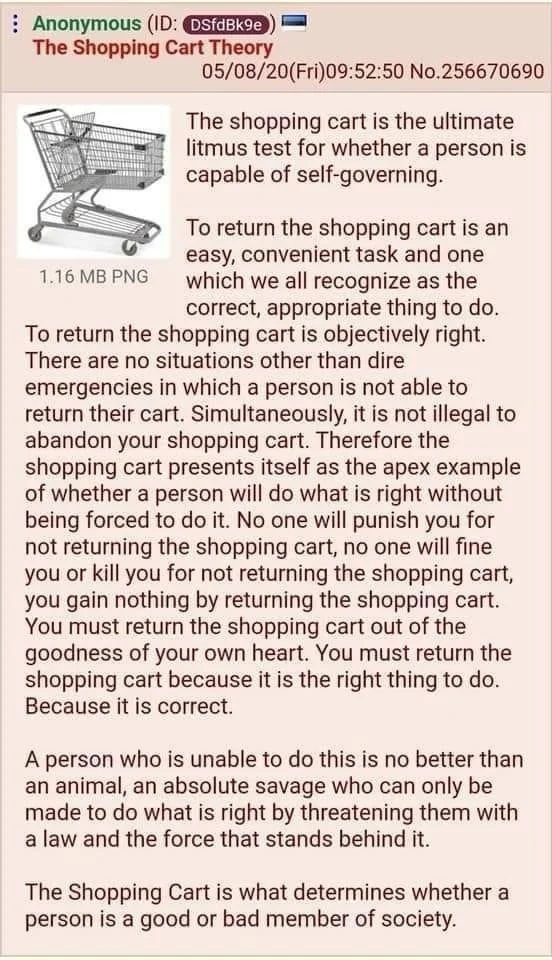The Intersection of Compliance and Security
The notion of compliance often elicits a complex mix of emotions. It's a subject that warrants a deep dive, especially when considering the essence of doing what's right, even in the absence of oversight. A compelling way to explore this concept is through the lens of the shopping cart theory, a fascinating narrative that sheds light on self-governance and moral responsibility.
The shopping cart serves as a universal litmus test for ethical behavior. The act of returning it is simple, universally recognized as correct, and represents a basic, yet profound, duty to society. It’s an action that, while not legally mandated, distinguishes individuals capable of self-regulation and ethical conduct from those who operate solely under the compulsion of legal consequences. This distinction is pivotal, drawing a line in the sand between those who embody societal values and those who do not.
This analogy resonates deeply within the context of compliance. There's an inherent pride in doing the right thing, akin to returning a shopping cart, without being prompted by external rules. However, the stark reality is that not everyone shares this ethos, underscoring the need for compliance to ensure minimum standards of behavior are met.
In the corporate environment, the tension between immediate gains and ethical practices becomes pronounced, highlighting the necessity for enforceable regulations to safeguard integrity. Compliance isn't about curbing innovation with bureaucratic red tape; rather, it's about creating an equitable framework where ethical conduct is the baseline, ensuring all players adhere to accepted standards.
The path of compliance is not without its hurdles. The notion that a single approach to risk mitigation exists is a myth, leading to occasional conflicts between businesses and auditors over the applicability and interpretation of controls. To illustrate, consider the example of a pedestrian at a crosswalk, where intuitive safety measures and procedures become a metaphor for the sometimes rigid and outdated compliance frameworks.
Navigating these challenges calls for a focus on the underlying purpose of controls, emphasizing discussions around risk mitigation over the specifics of compliance measures. This mindset fosters a richer comprehension of compliance as a nuanced, context-dependent endeavor that transcends mere box-ticking.
The shopping cart theory encapsulates a broader discussion on compliance, integrity, and societal duty. It prompts a reflection on our conduct and its societal implications, urging us to seek a balance between adhering to regulations and cultivating an internal culture of integrity that surpasses them. As we traverse the complexities of GRC, let us remember that compliance is not merely a procedural necessity but a manifestation of our collective commitment to ethical behavior and societal well-being.

